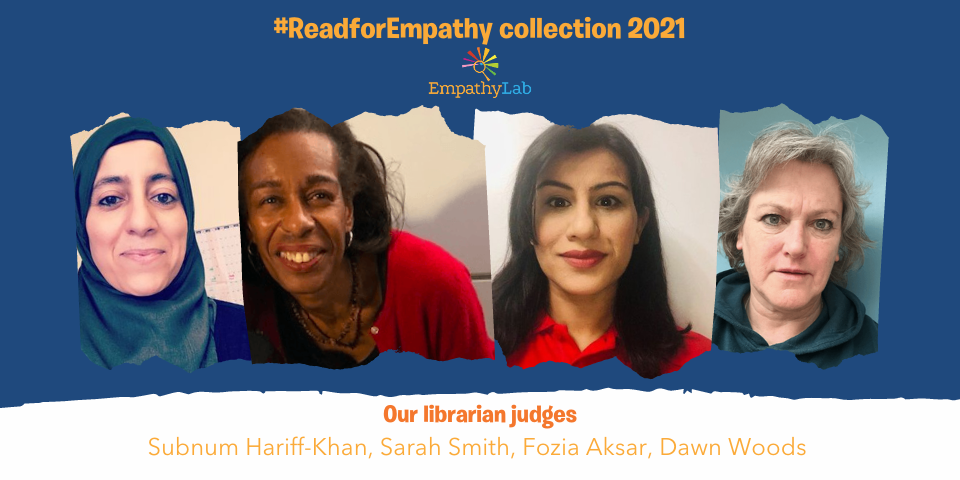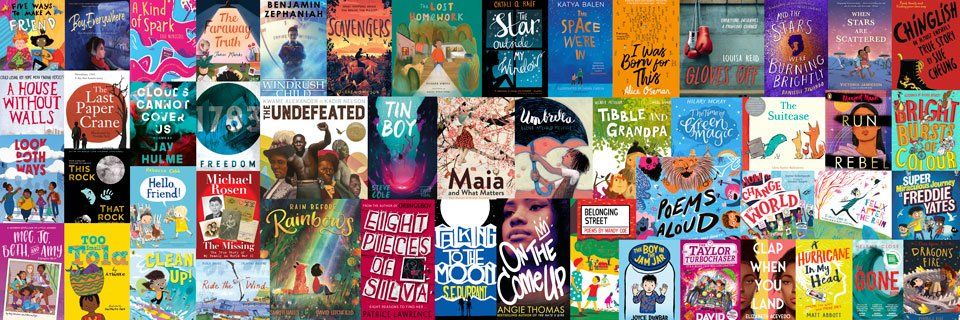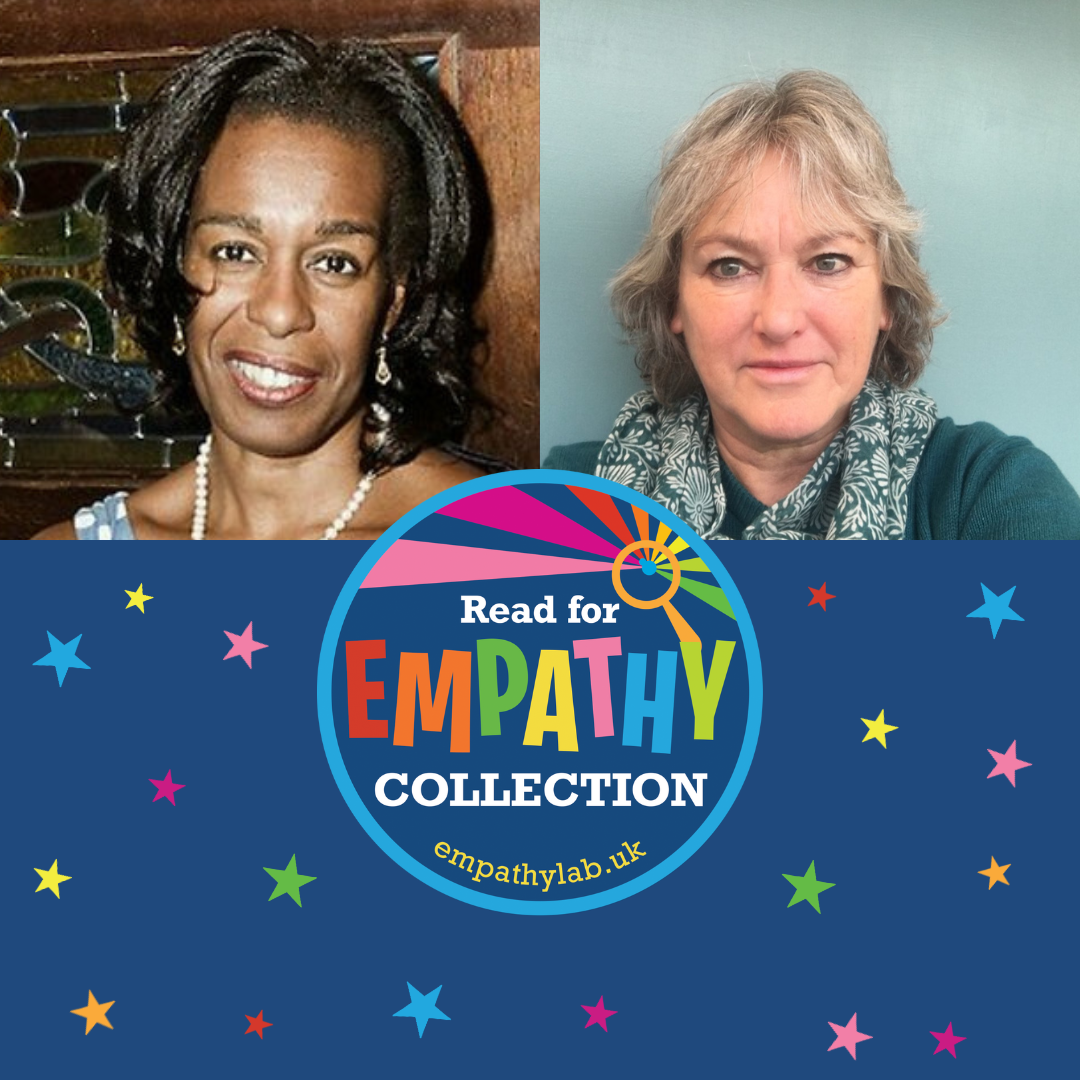Librarian judges speak
- By EmpathyLab
- •
- 26 Jan, 2021
- •
In an exclusive guest post, the four librarians on our 2021 #ReadforEmpathy judging panel share their thoughts on the collection.

The 2021 Empathy collections provide a moral compass for compassion, understanding and kindness. Aiming to encourage children, young people, carers, library staff, teachers and educators to reflect, especially on 2020 and the pandemic, and to be mindful in how we interact with people in 2021, they raise awareness in adults and allow young people to feel represented. Children and young people experiencing similar adverse situations will be encouraged to hope, whilst acknowledged for their resilience and ability to be kind and caring.
The primary collection offers age-appropriate books on love, kindness, friendship and care for our planet. Differences are explored, whether that of different cultures from ourselves, physically or different outlooks on life. Especially important given the year children have just experienced are books on bereavement and dealing with those emotions. The feelings of refugees are probed from different angles and, often overlooked, is the perspective of families where Dad is in prison or a traveller community representation. Above all cooperation with others and hope is paramount.
Critical themes in the secondary collection examine the dangers of social media bullying, the herd response and its effect on vulnerable young people. Society’s intense obsession with body image and those not conforming are ridiculed in cruel and heartless ways is explored. Domestic violence, often a shameful secret for many, is also examined. The heartache felt by families unable to link up for extended family festive 2020 celebrations pales against the plight of difficulties experienced by refugee families fleeing persecution from war torn countries and subsequent alienation in adopted homelands. The novels give more hope for acceptance for LGBTQ+ characters although there is still fear about identification.
Both 2021 lists give librarians access to a wealth of literature around current issues that interest children, teachers and families, all easily accessible for promotion via the booklists and borrowed for free from public and school libraries.
They offer guidance and instruction through different formats, prose, poetry, graphic novel and picture books to inform behaviour for improved relationships that seek to instil a more caring society. You are never too young or too old to learn to become a better you. Children can borrow and read quietly, taking in the messages of showing empathy to others. There are picture books suitable for under-fives’ storytime, titles that tie into themes such as Refugee and LGBTQ+ Months, and novels that explore the impact of ethnic culture on challenging issues. Library book displays, targeted authors events and social media promotions all help support these invaluable collections. Many of annual key topics covered in libraries are embedded in these book lists and can be used effectively when engaging with schools.
They serve to be not only essential learning resources, reading / listening for pleasure but also a mirror to ourselves. Would I really want to be friends with me? The collections serve to guide children, young people and adults from a range of backgrounds to review actions and resolve to travel more hopefully and carefully with humanity.
- Fozia Aksar, Subnum Hariff-Khan, Sarah Smith, Dawn Woods


The collection consists of 65 books for 3-16 year olds, each chosen for its unique contribution in building young people’s empathy.
The primary collection for 3-11 year has 40 books; the secondary collection features 25 books for 12-16 year olds.

I am very fortunate to have been on the Read for Empathy booklist judging panel over the past few years.
I’m also a practising classroom teacher so I would like to consider how the books on the list can influence what happens in a school.
Firstly, along with many other schools, reading aloud is an important part of our school day, every day, almost without fail. All the teachers at my school are aware of the EmpathyLab booklist, and often use it as a basis for choosing their next class read. Knowing that the books touch on important aspects of our children’s lives is key; we all understand how important representation is in stories. These are books that make a difference, that lead to passionate discussions in the classroom and can actually influence children’s behaviour .
The booklists become increasingly valuable. We have a couple of hundred empathy texts at our school – they are there on merit. Staff often refer to previous lists if there as a particular aspect of empathy that they want to include or share with the children.
Our Year 6 Reading Champions often seek out picture books from the list to take in to KS1 and Reception when they read stories, so we already have the next generation educating each other about the importance of empathy. I love the fact they often meet beforehand (they tend to work in twos) to discuss what questions they might want to ask the children once the story has been read. After each booklist is released, they also spend several of their Friday recommendation slots in assembly talking about a couple of the books. We have parents in on our Friday assembly so it’s a great way to share the texts with them and help raise their awareness of our work.
We often use the books as our teaching texts for English, partly because they encourage excellent writing but also because they provide a fantastic opportunity for our pupils to develop their empathy skills. The Wild Robot by Peter Brown, Miraculous Journey of Edward Tulane by Kate DiCamillo, Freedom by Catherine Johnson, Eyes that Kiss in the Corners by Joanna Ho and A Street Dog Named Pup by Gill Lewis are all books that have made in into our English curriculum as a result of being on one of the Read for Empathy booklists. Well, that’s not strictly true - Edward Tulane was there before that as it’s one of my favourite ever books, but you hopefully take my point.
Reflecting on our empathy journey over the past few years, I’ve also found that the more books children read that address empathy, where they can relate to the characters and their choices, the more books they want to read. It’s almost a virtuous circle. Many begin to realise that such books can empower them to think about situations.
For example, as soon as we finished A Street Dog Named Pup last year, several of them immediately wanted to read other books by Gill Lewis. Because empathy is a thread that runs through much of her work ( Gorilla Dawn , Moon Bear , The Closest Thing to Flying and so on). Thanks to EmpathyLab's lists, I was able to point them in the direction of several other books, by her and others.
I think we agree that teaching children about empathy and providing them with opportunities to develop it is one of the most important gifts we can give them as adults. The fact that empathy has gone from being something that schools sort of understood a few years ago to being something that has got an increasingly solid evidence base is crucial.
There’s always been anecdotal evidence that reading stories is important for children and that it can change how they think but now that’s backed up with research. The empathy revolution (and it is a revolution) is only going to pick up more momentum over the next few years as the need for it becomes ever more apparent. Working in schools and in the world of children’s books means that we’re in the front line. There’s nowhere else I’d rather be.
